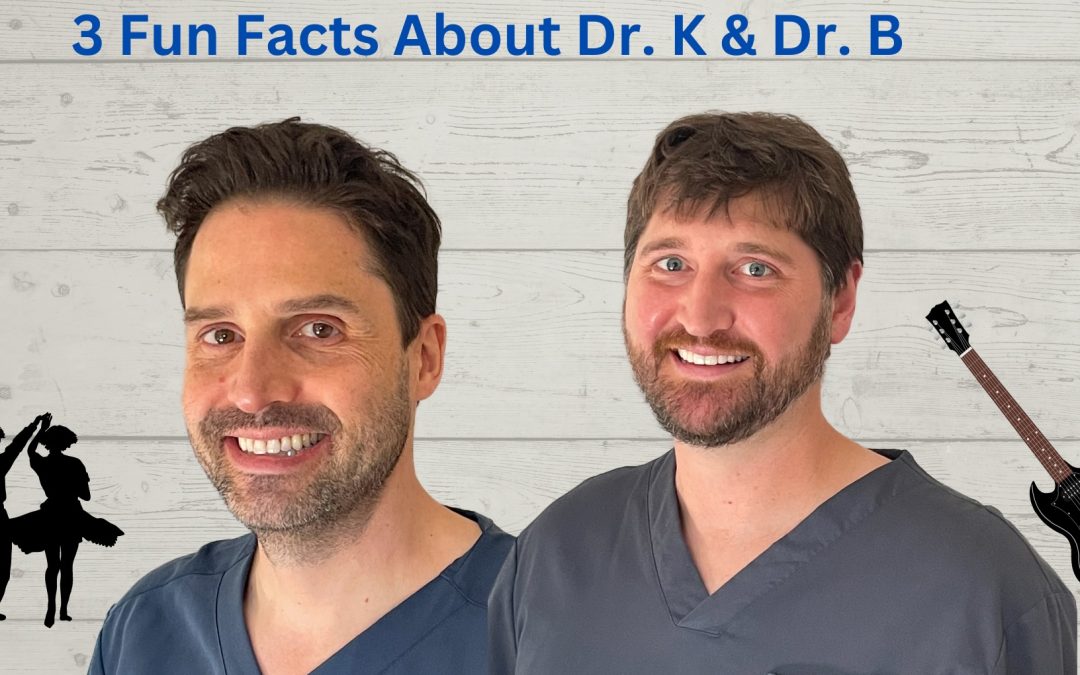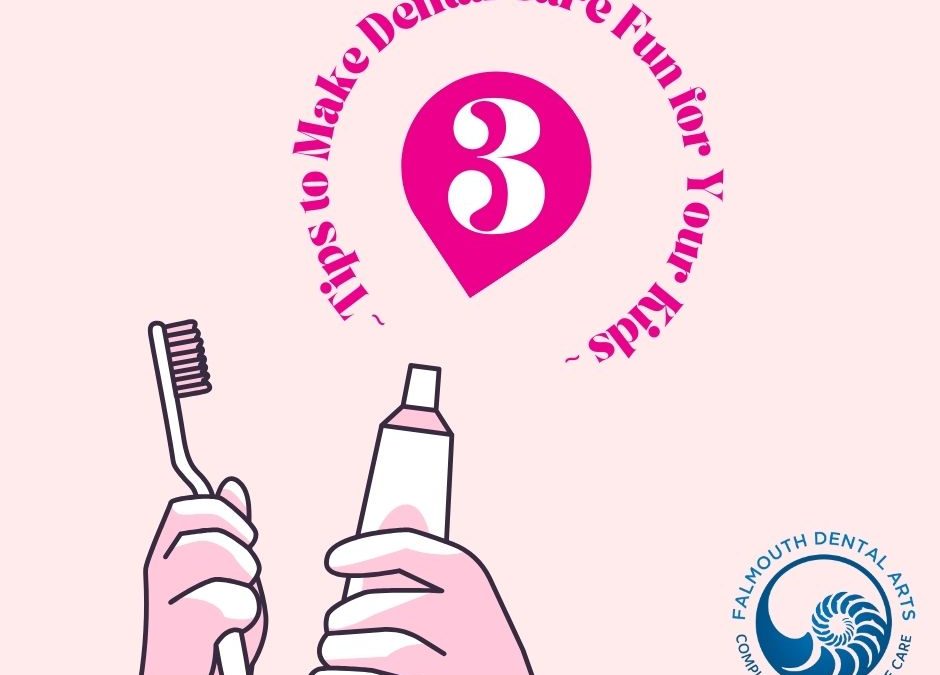
Mar 12, 2024
At FDA, we have an incredible team of Dental Assistants! Lindsey, Mary, Mirela, Pat, and Sydni are caring dental professionals who always put patient comfort first. March 5 – 11 is Dental Assistant Recognition Week, which makes it a great time to acknowledge and celebrate this group of women. We are so grateful for their dedication to their profession – they are constantly educating themselves and improving their skills and knowledge. This month we wanted to share a little about Mary, Mirela, and Pat so you can get to know them better!
Lindsey
Lindsey recently joined the FDA team as a dental assistant. She loves helping patients achieve positive goals with their dental health and is a great addition to our team! Lindsey enjoys hiking, camping, and swimming in the summer months. She also loves hanging out with her puppy, Tucker!
Mary
Mary has worked in the dental field since 1995. She is married with two kids, and a cat. She loves snowmobiling and being at the lake with her family. Mary also enjoys reading mystery novels.
Mirela
Mirela has worked in the dental field since 2003. She is married with two kids, a son and a daughter. Her family also has a dog. She is fluent in Albanian and Greek. Mirela loves snowshoeing with her husband.
Pat
Pat has worked in the dental field for over 20 years. She enjoys spending time with her boyfriend, friends, and family. Pat loves a good bonfire!
Sydni
Sydni is a temporary addition to the FDA team. She is currently finishing her bachelor’s degree at the University of New England and will be heading out to Roseman University in Utah in the fall for dentistry school. Go Sydni!
Thank you, Lindsey Mary, Mirela, Pat, & Sydni!
Next time you come in for an appointment, be sure to say hello to our wonderful team of Dental Assistants. They, along with Dr. Brunacini, Dr. Karagiorgos, will ensure your next procedure is a comfortable and stress-free experience for you. If you need to schedule your next appointment, please call at 207.781.5900.

Mar 11, 2024
Want to know one of our favorite holidays? National Dentist’s Day! Held annually on March 6th, National Dentist’s Day is an opportunity to highlight and honor all the men and women who keep our smiles healthy! At FDA, we are lucky to have two of the most skilled and compassionate dentists, who also happen to be really great people. To highlight our dynamic dentist duo, here are three fun facts about Dr. Brunacini and Dr. Karagiorgos.
Dr. Brian Bunacini
- Dr. B is fascinated by Dental Anthropology!
- Dr. B lives in Falmouth with his wife and son.
- Dr. B plays several musical instruments, including guitar, piano, drums, and bass.
Dr. Antonios Karagiorgos
- Dr. K is fluent in Greek and French, and can converse in Spanish, Italian, and Portuguese.
- Dr. K lives in Portland with his wife and two kids – a son and daughter, as well as their Aussie-doodle.
- Dr. K is participating in Dancing with the Dentists next month! Get your tickets!
A big thank you to Dr. Brunacini and Dr. Karagiorgos for all they do to care for our patients and our team of dental professionals! If you need to see Dr. B or Dr. K for a check up, give us a call today – 207.781.5900. We are here to provide you with the best oral care possible!

Feb 4, 2024
At Falmouth Dental Arts, we are lucky to have a compassionate team of some of the best oral health care professionals in the world! Everyone loves coming to work each day to help our patients meet their oral health goals and receive the best care possible. Our Employee Spotlight series highlights the individuals who make FDA an incredible place to work and receive dental care.
This month, as we celebrate our 5th (!!!) year in our building, we are thrilled to put the spotlight on the man who started it all, the beloved Dr. Glen Knock.
Why did you decide to be a dentist?
Dr. Knock: I wanted to help people and was thinking about either medical school or dental school. I chose dental school after my wife had a baby and I’m glad I did!
When did you open your first practice?
Dr. Knock: In May 1974 – 50 years ago! – I opened a practice with Dr. Frank Adshead. We split our practice in 1986 and I moved to South Portland. Eventually Dr. Joe Long joined my practice for a time and in the late nineties we moved back to Falmouth. There used to be a state law that you could only have a dental practice named after the practicing dentist. A Supreme Court case changed that, which opened the way for a practice to be named something other than a practitioner’s name. I was looking for a name that would carry on after I retired, and sometime in the early 2000s we became known at Falmouth Dental Arts.
Tell us more about the idea behind the phrase “dental arts.”
Dr. Knock: There is an artistry to dentistry, if the dentist is conscientious. It is quite aesthetic…the cosmetic dentistry that can be done to help a person. Now there are machines that tell you all the color mixes! [Check out FDA’s Same-Day Crowns!]
What was a highlight from your dental career?
Dr. Knock: The biggest highlight for me was the people. I was blessed to be able to work with some people for 20 or 30 years. Francine was my assistant for 40 years! We had a lot of fun together. We were a good team.
Another highlight for me was ‘Dancing with the Dentists.’ It was really fun and we helped a lot of people.
Tell us how you came up with such an amazing idea!
Dr. Knock: My wife and I were fans of ‘Dancing with the Stars’ and we were taking ballroom dancing lessons. Something clicked and we thought how great it would be if dentists could raise money for charities like The Root Cellar. Also, it’s nice to show another side to dentists; we’re not just guys and gals in white coats drilling your teeth. The first year we raised $40,000. I feel really good about that.
Would you share some of your favorite or most interesting experiences from your career?
Dr. Knock: Some of our staff meetings – everything went off the rails and we had a blast solving something!
What do you miss most about working at FDA?
Dr. Knock: I miss the interactions with people, no doubt. My poor wife – I went from having 100 interactions a day and now I’m down to just one (her). I always really enjoyed talking to people and learning about them.
Thank you, Dr. Knock!

Feb 2, 2024
Love your gums! Good oral hygiene is not just about caring for your teeth…it’s about caring your entire mouth, especially your gums! February is Gum Disease Awareness Month and close to 50% of adults have some form of gum disease. Warning signs include bad breath, bleeding gums, and sensitive teeth. If you notice any of these symptoms or have concerns about the health of your gums, come in to see Dr. Brunacini or Dr. Karagiorgos for a check up. We can help assess the health of your gums, go over a home care routine that will help, and, if needed, put together a treatment plan for you. In the meantime, to encourage you to care for your gums as you care for your teeth, here are a few ways you can give your gums a valentine this month and every month!
You + Floss = True Love for Your Gums
The number one thing you can do to prevent gum disease is floss daily. Flossing cleans bacteria and food debris from the nooks and crannies between your teeth that your toothbrush can’t reach. Whether you floss in the morning, at night, or after lunch doesn’t matter…just do it once a day! If traditional floss is difficult for you to use, explore water flossers or floss picks like plackers. Give your gums that flossing love!
Toast Your Gums by Drinking More Water
Drinking water is great for your overall health, but it can also help keep your mouth healthy, too! Drinking a glass of water after meals helps rinse away food and bacteria, which otherwise could cause gum inflammation and cavities. Cheers to healthy gums!
Treat Your Gums to a Massage
Next time you brush, give your gums a little extra love! Using soft, circular motions massage along your gum line. Massage helps stimulate blood circulation, can reduce gum disease inflammation, and help clean between your teeth. Incorporating this extra care into your brushing routine will improve your gum health. What a great way to show your gums you care about them!
Take Your Gums on a Date…to the Dentist
Coming in for regular check ups with Dr. Brunacini and Dr. Karagiorgos is a great way to love your gums and also an important part of your oral health care. Did you know that gum disease is the number one cause of tooth loss in adults, and it’s completely preventable? Routine visits help us keep your mouth healthy and prevent issues, like gum disease, from developing into larger problems. At your appointment, we’ll help you find a home care routine that works for you so we can work together to keep your gums and your teeth happy and healthy. How sweet is that!
If you have questions about your oral health or need to schedule your next appointment, give us a call at 207.781.5900. We are here to provide you with the best oral health care possible! xoxo

Feb 1, 2024
February is Children’s Dental Health Month and an excellent time to think about the ways you can set your kiddos up with a dental routine that keeps their teeth healthy! Want to know our favorite way to help kids have good oral hygiene habits? Make it FUN! Here are three tips that will help make dental care sillier, more playful, and – most importantly – a regular part of your kid’s day!
Invite Superman and Wonder Woman into your bathroom! Get your kids a toothbrush with their favorite superhero or cartoon character. You can then make brushing their teeth a game: POW! Superman is fighting all the bad guys in your kids mouth! ZAP! Wonder Woman is kicking out all the bad guys as you brush away all that cavity-causing bacteria. If superheroes aren’t your kiddo’s thing, get them a toothbrush in their favorite color. They can delight that their teeth were cleaned with PINK POWER! Find what is fun for your little one and brushing will no longer be a chore, it will be a game!
“When you wake up in the morning, it’s a quarter to one and you want to have a little fun…You brush your teeth!” From Raffi and Laurie Berkner to Elmo and the Sesame Street Gang, there are a lot of fun and silly songs out there that will have your kids tapping their toes while they brush those pearly whites. If you need ideas, the ADA put together a list of their family-favorite songs to inspire healthy dental habits. Don’t feel you have to limit yourself to dental songs…if your little one loves Taylor Swift or Frozen, blast their favorite tunes and have a fun family dance party while they brush!
Transform flossing into an exciting quest! Make up a fun and exciting story for your kiddo as you floss. Perhaps there is a brave hero who needs to explore between every tooth to look for the lost treasure! Or perhaps there is a lost hippopotamus and you’re on a flossing safari to find it! Use your imagination and have fun with it..your kiddo will be giggling and their gums will be healthy!
Our team of dental care professionals is here to help you and your family have the best oral care possible. If you have questions, need to schedule your kids’s next cleaning, or want some more help getting your kids to commit to a regular dental routine, give us a call at 207.781.5900. We’re your partner in oral health and in keeping your kids smiling!





